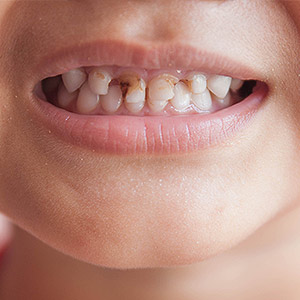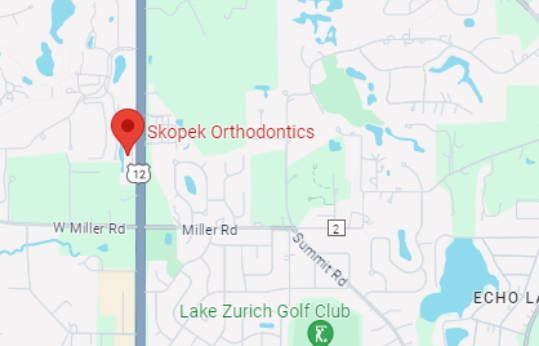With only a few teeth now showing in your baby’s mouth, you might think it’s too early to schedule their first dental visit. But you should, and here’s why: tooth decay.
Although adults are more likely to contend with dental disease, the exception for children is tooth decay. One kind of decay, early childhood caries (ECC), can wreak havoc in children’s primary teeth. While your child may or may not be at high risk for ECC, it’s better to err on the side of caution and begin regular checkups by their first birthday.
Since primary teeth eventually give way for permanent teeth, it may not seem that important to protect them from decay. But despite their short lifespan primary teeth can have a long-term effect on dental health for one primary reason: They’re placeholders for the permanent teeth that will eventually replace them.
If they’re lost prematurely to decay, nearby teeth can drift into the resulting open space. This can crowd out the intended permanent tooth, which may then erupt out of place (or not at all, remaining impacted within the gums). Protecting primary teeth from decay—or treating them if they do become infected—reduces this risk to the permanent teeth.
Besides regular cleanings, dentists can do other things to protect your child’s teeth from decay. Applying a high strength fluoride solution to teeth can help strengthen enamel against acid attack, the precursor to decay. Sealants on the biting surfaces of teeth deprive bacterial plaque of nooks and crannies to hide, especially in back molars and pre-molars.
You can also help prevent decay in your child’s primary teeth by starting a brushing regimen as soon as teeth start appearing. Also, limit sugar intake by restricting sugary foods to mealtime and not sending a child to bed with a sugary liquid-filled bottle (including juices or breast milk). And avoid possible transfers of oral bacteria from your mouth to theirs by not drinking from the same cup or placing any object in your mouth that might go in theirs.
Tooth decay can have long-term consequences on your child’s dental health. But by working together with your dentist you can help ensure this damaging disease doesn’t damage their teeth.
If you would like more information on tooth decay in primary teeth, please contact us or schedule an appointment for a consultation. You can also learn more about this topic by reading the Dear Doctor magazine article “Do Babies Get Tooth Decay?”


